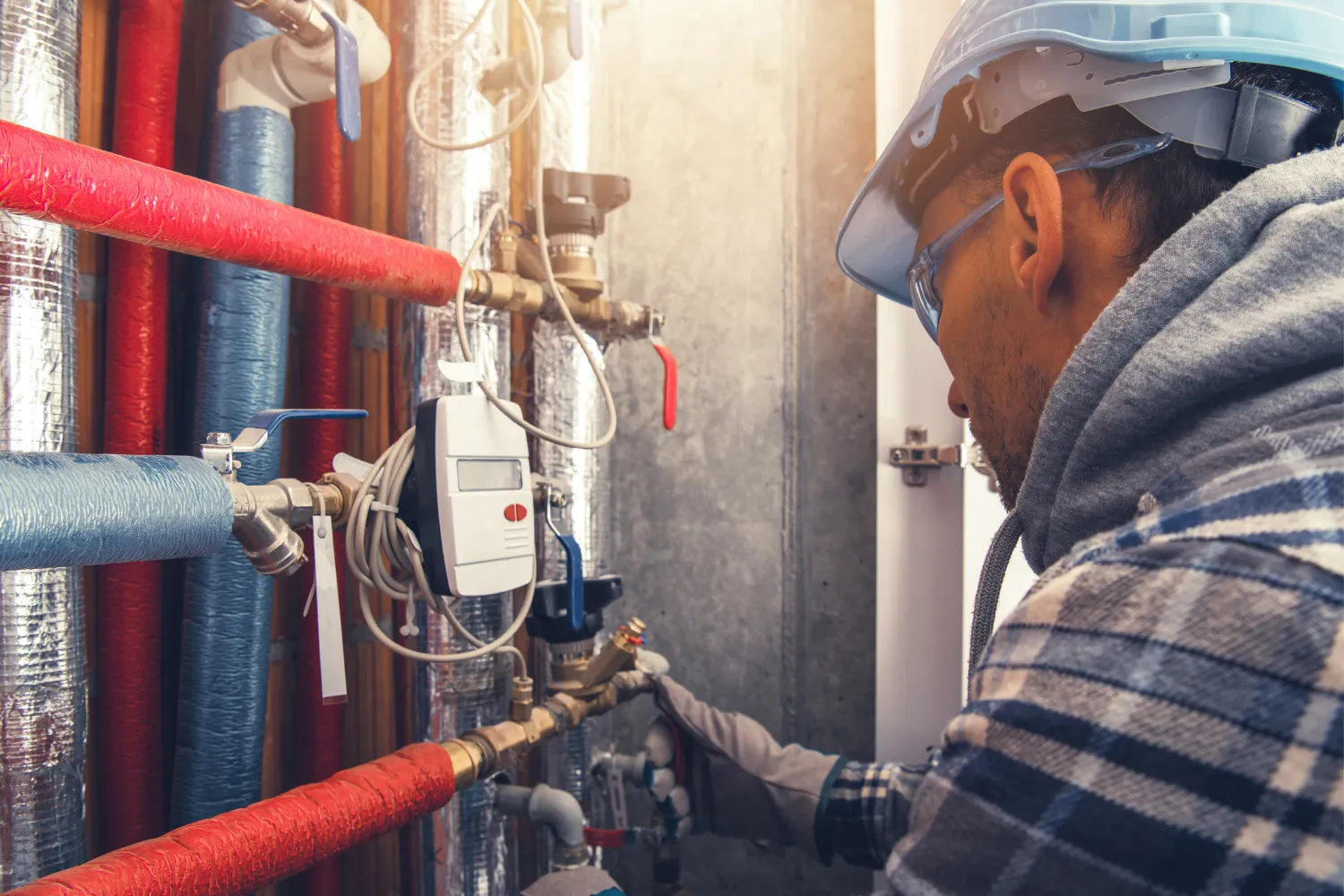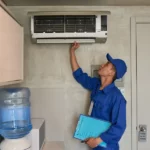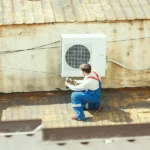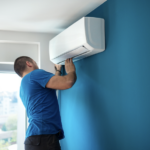When it comes to warming your home, you have options: heat pumps and air conditioners. Set up by the best HVAC professionals, both keep your space snug and comfortable. However, they are two different HVAC systems. In this article, we’ll examine the differences between heat pumps vs air conditioners to see which one is better for your home.
How Heat Pumps and Air Conditioners Work
Heat pumps warm your home by pulling heat from the outside air and bringing it inside. Even when it’s cold outside, the air still contains some heat. A heat pump takes advantage of this phenomenon by using this heat to keep your home cozy. To top it off, they’re very efficient, saving you money on heating bills.
Technically speaking, air conditioners are designed to cool your home, not warm it. However, recent AC units have reverse cycle functions and even built-in heat pumps. This allows them to warm a room as effectively as stand-alone heat pumps and furnaces.
Differences Between Heat Pumps Vs Air Conditioners
While heat pumps and air conditioners can keep your home snug and comfortable, they couldn’t be more unlike each other. Here are some ways they’re different:
Functionality
Heat pumps are versatile. They cool your home in the summer and warm it in the winter by transferring heat in or out. Meanwhile, ACs can only cool your home (unless they have the features mentioned above).
Energy Efficiency
Heat pumps are generally more energy-efficient. They move heat instead of generating it, which uses less electricity. This can save you money on your energy bills, especially if you live in a region with mild weather all year. On the other hand, air conditioners consume more energy since they need to actively regulate air quality and temperature.
Cost
Initially, air conditioners are cheaper to install than heat pumps, making them quite a popular choice for people on a tight budget. Over time, though, the operating costs of heat pumps become lower, eventually making them as popular as ACs, if not more.
Other Factors to Consider Before Choosing Either
Still torn between heat pumps vs air conditioners? Here are a few more things to think about before getting either:
Installation Requirements
Installing heat pumps takes more effort than installing air conditioners. That’s because the process includes handling the equipment that switches between heating and cooling. In any case, make sure your home can support this setup.
Installation Space
Heat pumps generally need more space around them to operate efficiently since they have indoor and outdoor components. Air conditioners require less space, which is vital if your outdoor area is limited.
Maintenance Needs
While both systems require regular maintenance, heat pumps generally need more attention because they’re used year-round. They need checks in both summer and winter modes, which might increase your upkeep costs slightly.
Durability
Heat pumps typically have a longer lifespan when maintained properly, as they are designed to operate in varying conditions. Air conditioners might have a shorter life in regions with extreme weather since they are primarily used heavily during hot months. However, you can lengthen its lifespan by working with a reliable AC repair.
Noise Level
Some heat pumps can be noisier than air conditioners when running, especially in heating mode. Consider this if you’re sensitive to noise or the equipment is near a bedroom or a main living area.
Local Climate Conditions
Heat pumps are less effective in icy conditions where temperatures drop below freezing regularly. Air conditioners also fare the same way, even with advanced heating capabilities. Choose based on the most common weather conditions in your area.
Zoning Capabilities
Heat pumps often work well with zoned systems, which allow you to control temperatures in different areas of your house. This is efficient and can save money. While some air conditioners offer zoning, implementing it might be more complex and expensive.
Frequently Asked Questions
Can heat pumps really heat my home during a cold winter?
Yes, heat pumps can heat your home in winter. However, their efficiency might drop if it gets extremely cold. In such cases, you might need a supplementary heating system. For mild to moderately cold climates, heat pumps are usually sufficient.
Are air conditioners or heat pumps better for reducing humidity?
Air conditioners are generally better at reducing indoor humidity because they cool the air by removing moisture. This makes them ideal for humid climates. Heat pumps can also manage humidity but are generally less effective than air conditioners during damp conditions.
What’s the cost difference between running a heat pump and an air conditioner?
Operating costs for heat pumps are generally lower than air conditioners, mainly if you use the heat pump for heating and cooling. This is because heat pumps are more energy-efficient, using less electricity. However, the costs might be closer in areas with extreme temperatures as each system works harder.
How long do heat pumps and air conditioners last?
Both heat pumps and air conditioners typically last between 15 to 20 years, though this can vary based on maintenance and usage. Heat pumps might have a slightly longer lifespan due to their robust construction. At any rate, regular maintenance is crucial to optimize the lifespan of either system.
Can I install a heat pump or air conditioner myself?
It’s recommended that a professional install either a heat pump or an air conditioner. These systems require proper handling of refrigerant and electrical components. Incorrect installation can lead to inefficiencies and might even be dangerous.
Final Thoughts
Can’t decide between heat pumps vs air conditioners? Our article will clear up your confusion! Learn how each system works, how they’re different from each other, and the other factors to consider before getting either.
Whether it’s chilling summer days or cozy winter nights, making the right choice today can help optimize your home’s comfort year-round. So start reading now to make the best decision!






